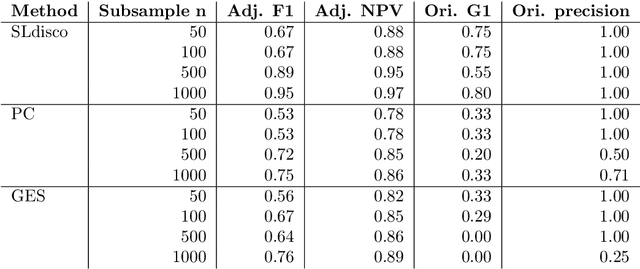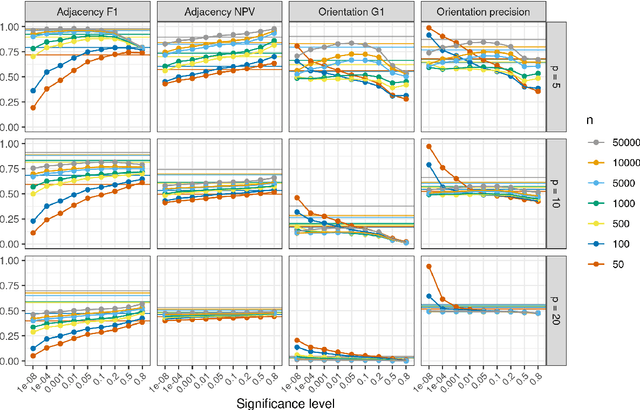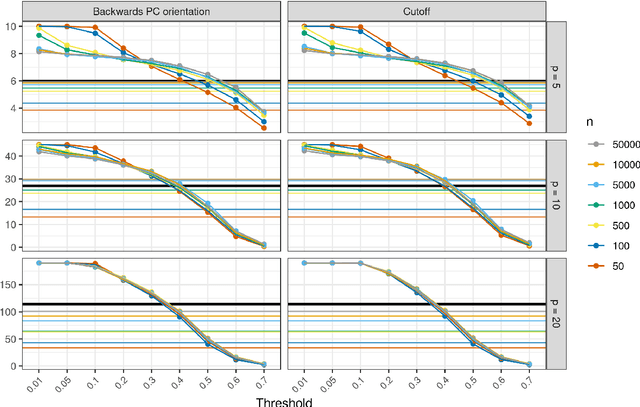Anne Helby Petersen
Are you doing better than random guessing? A call for using negative controls when evaluating causal discovery algorithms
Dec 13, 2024Abstract:New proposals for causal discovery algorithms are typically evaluated using simulations and a few select real data examples with known data generating mechanisms. However, there does not exist a general guideline for how such evaluation studies should be designed, and therefore, comparing results across different studies can be difficult. In this article, we propose a common evaluation baseline by posing the question: Are we doing better than random guessing? For the task of graph skeleton estimation, we derive exact distributional results under random guessing for the expected behavior of a range of typical causal discovery evaluation metrics (including precision and recall). We show that these metrics can achieve very large values under random guessing in certain scenarios, and hence warn against using them without also reporting negative control results, i.e., performance under random guessing. We also propose an exact test of overall skeleton fit, and showcase its use on a real data application. Finally, we propose a general pipeline for using random controls beyond the skeleton estimation task, and apply it both in a simulated example and a real data application.
Causal discovery for observational sciences using supervised machine learning
Feb 25, 2022



Abstract:Causal inference can estimate causal effects, but unless data are collected experimentally, statistical analyses must rely on pre-specified causal models. Causal discovery algorithms are empirical methods for constructing such causal models from data. Several asymptotically correct methods already exist, but they generally struggle on smaller samples. Moreover, most methods focus on very sparse causal models, which may not always be a realistic representation of real-life data generating mechanisms. Finally, while causal relationships suggested by the methods often hold true, their claims about causal non-relatedness have high error rates. This non-conservative error tradeoff is not ideal for observational sciences, where the resulting model is directly used to inform causal inference: A causal model with many missing causal relations entails too strong assumptions and may lead to biased effect estimates. We propose a new causal discovery method that addresses these three shortcomings: Supervised learning discovery (SLdisco). SLdisco uses supervised machine learning to obtain a mapping from observational data to equivalence classes of causal models. We evaluate SLdisco in a large simulation study based on Gaussian data and we consider several choices of model size and sample size. We find that SLdisco is more conservative, only moderately less informative and less sensitive towards sample size than existing procedures. We furthermore provide a real epidemiological data application. We use random subsampling to investigate real data performance on small samples and again find that SLdisco is less sensitive towards sample size and hence seems to better utilize the information available in small datasets.
 Add to Chrome
Add to Chrome Add to Firefox
Add to Firefox Add to Edge
Add to Edge